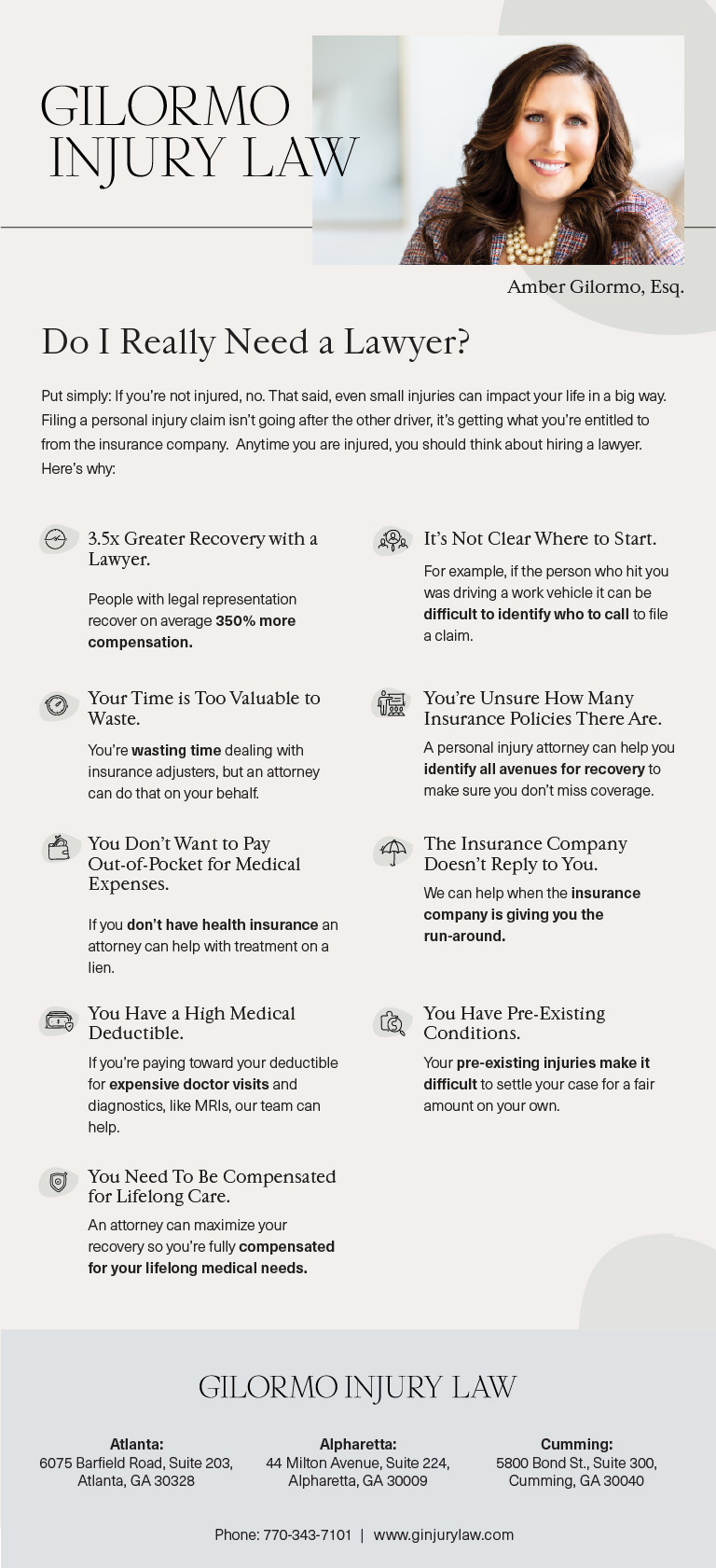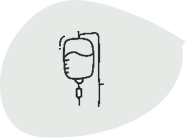The Basics of Negligence in a Georgia Personal Injury Claims
Most personal injury cases are cases based on negligence. The injured party (the victim) claims that their injury was caused by the other party’s negligence. As a result, proving negligence is often the key element in a successful personal injury case.
Simply put, negligence is when someone fails to take reasonable care to prevent harm to another person. It is determined by considering what a reasonably prudent person would do under the same or similar circumstances. Negligence can take the form of acting in a careless way or failing to act.
Negligence can be a tricky concept – it can include affirmative actions (i.e. something on purpose_ as well as a failure to act. When another person is negligent, it generally means that they have failed to take reasonable care to prevent an accident.
The judge or jury will find negligence according to the standard of what someone of “ordinary prudence” would do or not do in the same or very similar circumstances. Obviously, words like “reasonable” and “ordinary prudence” suggest that there is no black-and-white rule that determines whether or not someone is negligent. Instead, the specific facts and circumstances of the case, coupled with legal precedent, determine whether or not someone’s negligence caused your accident. An Atlanta injury attorney at Gilormo Injury Law can review your case and determine whether you have a claim for negligence.
Examples of Negligence
Negligence can occur in a wide range of cases. We’ve outlined some common examples that an Atlanta accident attorney can handle:
Compensation Your Atlanta Personal Injury Lawyer May Pursue
If you’ve suffered a serious injury, your losses could extend far beyond the medical bills you’ve accumulated to date. Unfortunately, many non-lawyers underestimate what their injuries will cost. Under the law, you are entitled to be made whole, which means you are entitled to compensation for all of your losses. The total value of your claim will include the following components:
- Your medical expenses, especially any uncovered expenses such as deductibles and copays.
- Any and all lost income, such as lost wages, because you were unable to work due to your injury or had to take time off to receive medical treatment.
- Any other expenses caused by the accident such as accommodations to your home or increased transportation costs because you cannot drive.
- Pain and suffering you have experienced as a result of your injuries.
Pain and suffering is the most difficult of these components for non-lawyers to calculate because there are no bills that you can refer to. Instead, damages awarded for pain and suffering attempt to compensate you for the physical pain and mental anguish caused by your accident. Georgia does not limit the amount you can seek for pain and suffering and does not mandate you use a specific formula. However, we recommend that you consult with an experienced Atlanta personal injury lawyer to formulate your claim to ensure the best possible recovery.
The Statute of Limitations for Injury Claims in Georgia
For almost every type of legal claim, the law imposes a deadline by which a lawsuit must be filed, or you lose your right to sue. This deadline is referred to as the statute of limitations. In Georgia, the statute of limitations for personal injury claims is two years of the date of your injury. If you don’t file your lawsuit within two years, you will be unable to seek compensation for your injuries.
Two years may sound like a long time, but it passes faster than you think. The longer you wait to meet with a personal injury attorney, the harder it may be to prove your case – witnesses move, documents get lost, and memories fade. Even if you don’t plan to file a lawsuit, insurance companies will not even consider your claim if the statute of limitations has passed.
Settlement vs. Trial: What Our Atlanta Personal Injury Lawyer Wants You To Know
Whether a lawsuit settles or goes to trial generally revolves around both parties’ willingness to compromise. Sometimes, one or both of the parties involved are angry and determined to punish the other party at any cost. Additionally, there is a possibility that you may recover more compensation from a trial verdict than you would in a settlement.
Nonetheless, the vast majority of cases are settled, and with good reason. Settling your case has many advantages over going to trial, including:
Costs.
A claimant has a distinct advantage over a defendant in a child injury case, that being costs. While a claimant is typically operating under a contingency fee basis, like clients of each Atlanta personal injury lawyer at Gilormo Injury Law, defendants are typically paying their lawyers on an hourly basis. This means that the claimant can negotiate with substantial bargaining power, often resulting in favorable settlements.
Stress.
Trials are stressful, period. Although a typical personal injury trial lasts only a few days, the process is exceptionally stressful for everyone involved. Both parties may be subjected to examination and cross-examination on the witness stand, and have their past and their character publicly scrutinized.
Predictability.
While a jury may award a claimant more money than a settlement does, there is no guarantee. Successful settlements carry virtually no risk, but there are great risks in going to trial. Trials are unpredictable. Eyewitnesses might come across as unreliable, important evidence might be excluded, there may be inconsistencies in the plaintiff’s testimony, and any number of unpredictable circumstances may arise. Even more unpredictable than proving liability is the amount of compensation the jury will award a winning claimant. How much a claimant will be awarded is up to the jury’s discretion, and predicting what that number will be ahead of time can never truly be more than an educated guess.
Time.
A personal injury trial will often not begin until more than a year after a lawsuit is filed. Furthermore, the losing party may prolong the process through appeals. It is common for the entire process to take three or four years or even longer. On the other hand, settlements end the entire process once the settlement agreement is signed.
Privacy.
Settlements are private. Trials are public record.
About Our Georgia Personal Injury Practice
Personal injury law encompasses far more than just car accident cases. Personal injury law includes any accident where you are injured through the fault of another. Atlanta personal injury lawyer Amber Gilormo assists individuals and their families throughout Georgia with the following types of cases:
- Truck accidents. While these share certain similarities with car accident cases, there are many elements that make Atlanta truck accidents far more complicated. The size and weight of the truck can result in injuries that are much more severe, and you will likely have to pursue your claim against a corporate entity vs. an individual.
- Bicycle accidents. Bicyclists have unique rights and responsibilities when using our roadways that will determine whether or not you are entitled to compensation if you are injured.
- Pedestrian accidents. Pedestrian vs. vehicle accidents can leave walkers and joggers with catastrophic injuries. If a driver violates traffic pedestrian laws, you may be entitled to compensation.
- Dog and animal attacks. Dog bites are especially common in young children and can leave permanent scars and disfigurement.
- Negligent security. If you’re injured in a public place, property owners and managers may be responsible for your injuries.
- “Slip and fall” cases and other instances of premises liability. Property owners have a legal obligation to ensure their property is safe for guests, customers, and other visitors. If you are injured on someone else’s property, an Atlanta personal injury law firm can evaluate your potential claim.
- Defective toys & products for children. Manufacturers, distributors, and retailers have a legal duty to ensure their products are safe. If you can prove a product is defective, you may be entitled to compensation for injuries resulting from the defective item.
- Nursing home negligence and abuse. Sadly, nursing home abuse and neglect is more common than many people realize. If your senior isn’t getting the care they deserve, an Atlanta personal injury lawyer may be able to help you hold the nursing home accountable.
- Wrongful death. Personal injury cases where the victim has died require special consideration. Family members may be entitled to damages not available in other cases, but you need to know who can bring the claim.
It is common for injury victims to be unsure if they have a personal injury case. The bottom line is that you should speak with an Atlanta injury lawyer if you have been injured and believe there is a possibility that another party may be at fault. Gilormo Injury Law can evaluate your claim for free and help you understand your legal options. Plus, with offices in Atlanta, Alpharetta and Cumming, we make it easy for you to meet with us and get the help you need. 



















